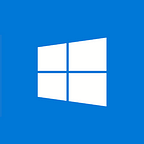Startup growth inspires Wrike to startup
Making teams “insanely productive” and working together “at the speed of life” merits collaboration platform a Windows Developer Award.
Growing pains in thriving startups can become their undoing, unless the founders are savvy enough to take note and take action. When in college, entrepreneur Andrew Filev started his first company — a software consultancy — and soon found himself managing 100 engineers across world, running 20 projects at once, and heavily relying on email.
“Real life is complex; it moves faster and faster every year. In order to keep pace with innovation,” he says, “we needed some software to run the company — a system that would glue us all together.” That system became what we know today as Wrike.
Now a game-changing online work management and collaboration platform, Wrike recently won a Windows Developer Award for “Commercial Developer of the Year.”
Wrike’s mission is to make teams “insanely productive” by enabling them to work together in real time — “at the speed of life.”
A philosophy of operational excellence
As Wrike founder and CEO, Andrew is responsible for over 500 employees who support millions of users in over 15,000 enterprises. Its customers range from Airbnb and Fitbit, to L’Oreal and Popchips.
One of the factors that makes Wrike so compelling, says Andrew, is that it’s more than a software platform — it’s a philosophy, too.
“Communication is an essential part of work. But it’s interesting because communication can also create inefficiencies. Firstly, it can feed the belief that, ‘Once I message you, it’s your problem.’ Secondly, we are receiving more and more email and push notifications every day — yet when it comes time to make a decision, we don’t always have that crucial piece of information.”
With Wrike, teams can share projects, break large goals into manageable pieces, see the changes that their colleagues are making in real time, and gain insights into work streams — all on one platform. More importantly, perhaps, Wrike turns conversations into structured tasks.
The idea is that employees spend less time digging through their inboxes for information that’s most likely out of date anyway. “When you need to make that call, you can just dive into Wrike, get real time data, make a decision, and move on.”
Collaborating closely with Microsoft
The company’s dedication to its craft has earned it a ton of recognition. “We’re very honored and excited about the Windows Developer Award. We put a lot of heart into this integration, and our teams did an incredible job of building a desktop app that addresses our customers’ needs for a Windows-specific experience on a desktop.
One of the goals was to give users even faster accessibility to our features, and I definitely feel like we accomplished that. It’s particularly special because Wrike invests a lot of its development efforts into the Microsoft ecosystem. Office365 now has more than 120 million users so it’s important to have deep integration with our teams.”
Many of Wrike’s users operate businesses in the on-demand space and don’t have the luxury of being able to map out their marketing campaigns six months in advance.
In order to meet those needs, Wrike deploys a product management methodology that starts with why. “We spend a lot of time trying to understand the underlying jobs that our customers are doing.”
Customer voice has big influence on Wrike’s roadmap. “We use it to source and prioritize which ideas get into the pipeline. After that, there are multiple phases of validation. So, for example, we use our customer advisory board and product managers to solicit feedback from customer success teams”.
Another of Wrike’s guiding principles is a commitment to empowering its teams to make independent decisions. “Wrike is not a ‘top down’ organization,” Andrew says. “Our engineers are experts in their fields, so instead of just telling them what to do, we give them the freedom to make good judgements. That’s tremendously important.”
Working smarter with the help of machine learning
In the future, Andrew thinks that more and more of those decisions could be augmented by artificial intelligence. Wrike is already making rapid progress in that field — and it’s a frequent source of inspiration at company events.
“Once a year, we have a big developer kick-off event that includes an internal hackathon,” he says. “It’s actually one of my favorite parts of the year because our engineers always surprise me with fresh thinking. At the last hackathon, we got a lot of AI ideas that seriously blew my mind.”
Zooming in on some of the key benefits of AI, Andrew highlights “repeatable patterns” as the key to helping employees unlock even greater efficiencies. By predicting those patterns — and the likely outcomes — Wrike aims to make its customers increasingly productive.
“Let’s say, for example, that an employee has more work than they’re capable of producing and is going off track. With AI, we could step in and optimize the machinery of the whole organization, to make that person’s job much, much easier.
The more we can leverage AI to get insights into the data, the more we can find the bottlenecks and help companies better prioritize their resources. Ultimately, the goal is to help employees work a little bit less — but produce much more.”
Companies can give Wrike a try for free.
